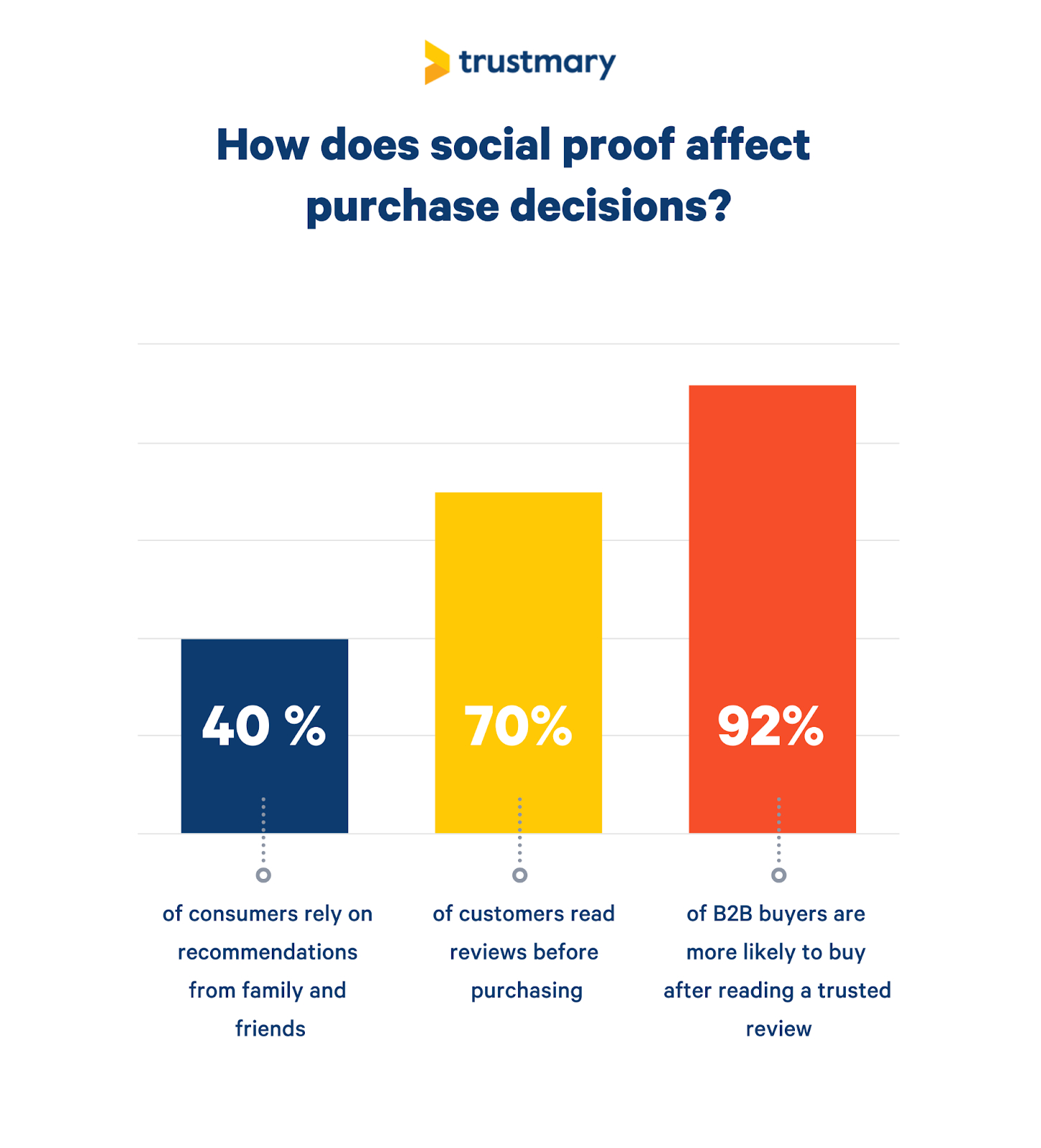Understanding your customers is essential these days. The most successful companies know that growth depends on more than innovation and marketing. It requires listening to people who actually use their products or services.
Consumer feedback is one of the most potent tools available to any business, whether you operate in the B2B or B2C space. It provides direct insight into customer desires, preferences, and pain points. With this data, you can make informed decisions that drive long-term success.
In this guide, we’ll explore consumer feedback, why it’s crucial for B2B marketing, how it can improve your business, the best ways to collect it, and the tools you can use to streamline the process.

What is Consumer Feedback?
Consumer feedback is information, opinions, and suggestions that customers provide about their experiences with a product, service, or brand. It can be positive, highlighting what’s working well, or constructive, pointing out areas for improvement.
Feedback can come in many forms, including:
- Online reviews and ratings
- Customer surveys
- Social media comments
- Direct emails or support requests
- In-person conversations with sales or customer service teams
Here are two consumer feedback examples:
- A customer leaves a review stating that your software is easy to use but could benefit from more integrations.
- A client completes a post-project survey, noting that your communication was excellent, but delivery took longer than expected.
Both types of feedback are valuable. One tells you what to maintain, and the other highlights opportunities for improvement. Companies need to see where they’re winning and where they can adapt – both to strengthen their business model and to enhance behavioral targeting.
Why is Consumer Feedback Important in B2B Marketing?
In B2B marketing, decisions often involve multiple stakeholders, longer sales cycles, and higher financial stakes than in consumer-focused markets. Consumer feedback is vital in building trust and credibility with potential clients.
Here’s why it matters:

Source: Trustmary
1. Influences Purchasing Decisions
B2B buyers typically need to seek approval from higher-level team members before purchasing. Therefore, they often want reassurance before committing to a significant investment. Positive feedback from other businesses can be powerful social proof, helping prospects feel confident in choosing your company. Data shows that 92% of B2B buyers are more likely to buy after reading a trusted review.
2. Strengthens Client Relationships
By actively seeking feedback, you show clients that their opinions matter. This fosters loyalty and encourages long-term partnerships, crucial in B2B industries where repeat business is common.
3. Identifies Niche Market Needs
B2B products and services often serve specialized markets. Feedback can reveal unique industry requirements you might not have considered, allowing you to tailor your offerings for better results.
4. Guides Marketing Messaging
Feedback can uncover the language and benefits that resonate most with your customers. This insight can help refine your marketing materials to connect with potential clients better. Sometimes, you can use their exact words and phrases in sales copy to create a strong message that resonates.
How Can Consumer Feedback Help Your Business Improve?
Regardless of your industry, consumer feedback is a guidebook for continuous improvement. It provides actionable insights that can shape every aspect of your business.
Here’s how:
- Enhances Customer Experience: Listening to feedback helps you address recurring pain points and streamline processes. This will allow you to adjust accordingly, improve satisfaction, and boost retention rates and referrals.
- Informs Strategic Decisions: Feedback can point out which services are most valued, which features are underused, and where customers see room for growth. This information helps you prioritize resources and investments effectively.
- Boosts Brand Reputation: Acting on customer suggestions and publicly acknowledging changes based on feedback demonstrates responsiveness and integrity, strengthening your brand image.
- Identifies Training Needs: If feedback consistently points to issues in customer service, delivery, or technical support, it’s a sign that staff training or process improvements are necessary.
The Role of Consumer Feedback in Product Development
Consumer feedback is one of the most reliable sources of guidance when creating or refining products. It ensures that development efforts align with actual customer needs rather than assumptions.
Here’s why it’s beneficial:
- Validates Product Concepts: Before investing heavily in a new idea, feedback from your target audience can confirm whether the concept addresses a real problem worth solving. This prevents costly missteps in development.
- Prioritizes Features: Customers can help you determine which features are essential and which are “nice to have.” By focusing on high-priority features first, you deliver more immediate value.
- Improves Usability: Real-world usage often reveals design flaws or user experience issues that internal teams might overlook. Feedback from early adopters can guide adjustments before a full-scale launch.
- Drives Innovation: Sometimes customers will suggest features or use cases you hadn’t considered, sparking new product ideas or improvements that give you a competitive edge.
The Best Ways to Collect Consumer Feedback
Gathering consumer feedback effectively requires some thoughtful planning. You’ll need to decide how to collect information based on what works best for your audience and budget.
1. Surveys and Questionnaires
Surveys enable you to collect first-party intent data from a broad audience. You can ask targeted questions about specific aspects of your product, service, or overall experience, making it easier to identify trends. Keep them short and focused to encourage higher response rates.
2. Customer Interviews
One-on-one interviews provide more profound insights than surveys because you can ask follow-up questions and clarify responses. They’re beneficial in B2B settings, where the buying process is complex. These conversations often uncover valuable details that structured questions might miss.
3. Focus Groups
Inviting a small group of customers for a guided discussion can reveal collective opinions and shared experiences. Focus groups are ideal for testing new ideas or concepts before launch. They also allow participants to build on each other’s responses, leading to richer feedback.
4. Social Media Listening
Customers often share candid opinions on social media platforms. You can gather authentic feedback without directly soliciting it by monitoring mentions, comments, and hashtags related to your brand. This method is beneficial for tracking sentiment over time.
5. Customer Support Interactions
Every interaction with your support team is an opportunity to collect feedback. Support tickets, chat transcripts, and call recordings can reveal recurring issues and common customer frustrations. By analyzing these touchpoints, you can proactively address problems before they escalate.
Tools to Gather Consumer Feedback
Leveraging technology can make collecting, analyzing, and acting on consumer feedback far more efficient. Here are some of the top tools that can help:
- SurveyMonkey: A widely used tool for creating and distributing surveys, SurveyMonkey offers customizable templates and advanced analytics. It’s ideal for gathering feedback quickly.
- Typeform: Known for its user-friendly interface, Typeform makes surveys more engaging, leading to higher completion rates.
- Google Forms: A free, accessible option for creating surveys and collecting feedback. While it lacks some advanced features, it integrates seamlessly with Google Sheets for easy data analysis.
- Sprout Social: A robust social media listening tool that helps you track brand mentions, sentiment, and trending topics. It’s beneficial for identifying unprompted feedback and industry trends.
- Brandwatch: This social listening platform allows users to collect insights from millions of online sources, providing plenty of data to adapt and grow their online businesses.
Grow Your Business with Consumer Feedback
Consumer feedback is more than a performance metric. Think of it as a strategic asset your business requires for massive growth. You can improve satisfaction, increase loyalty, and drive sustainable growth by listening to your customers, analyzing their input, and making informed changes.
Hushly can help you create landing pages, content hubs, and more that appeal to your target audience, driving more engagement and leads.
Book a demo to test drive Hushly today.

